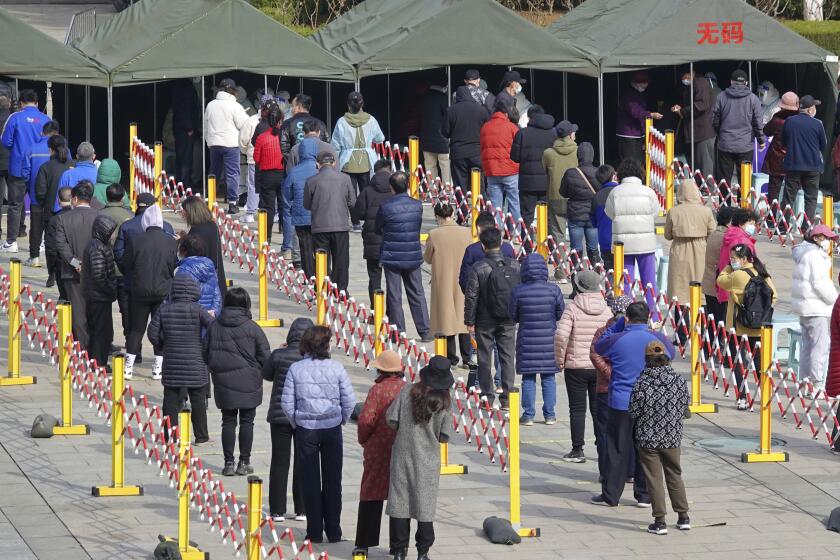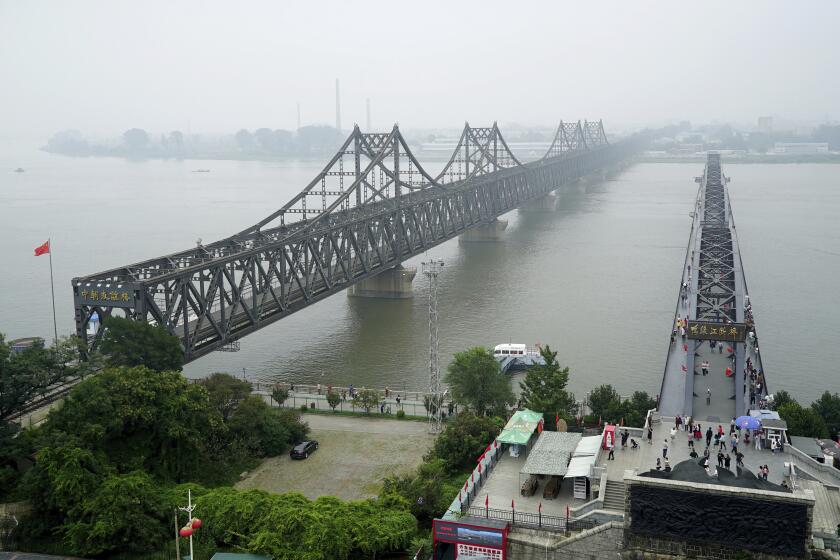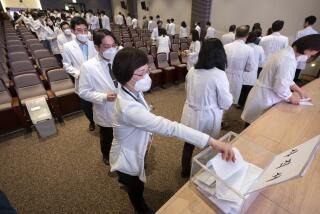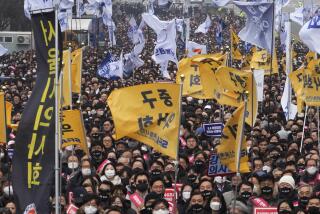South Korea reports record COVID-19 deaths amid Omicron surge
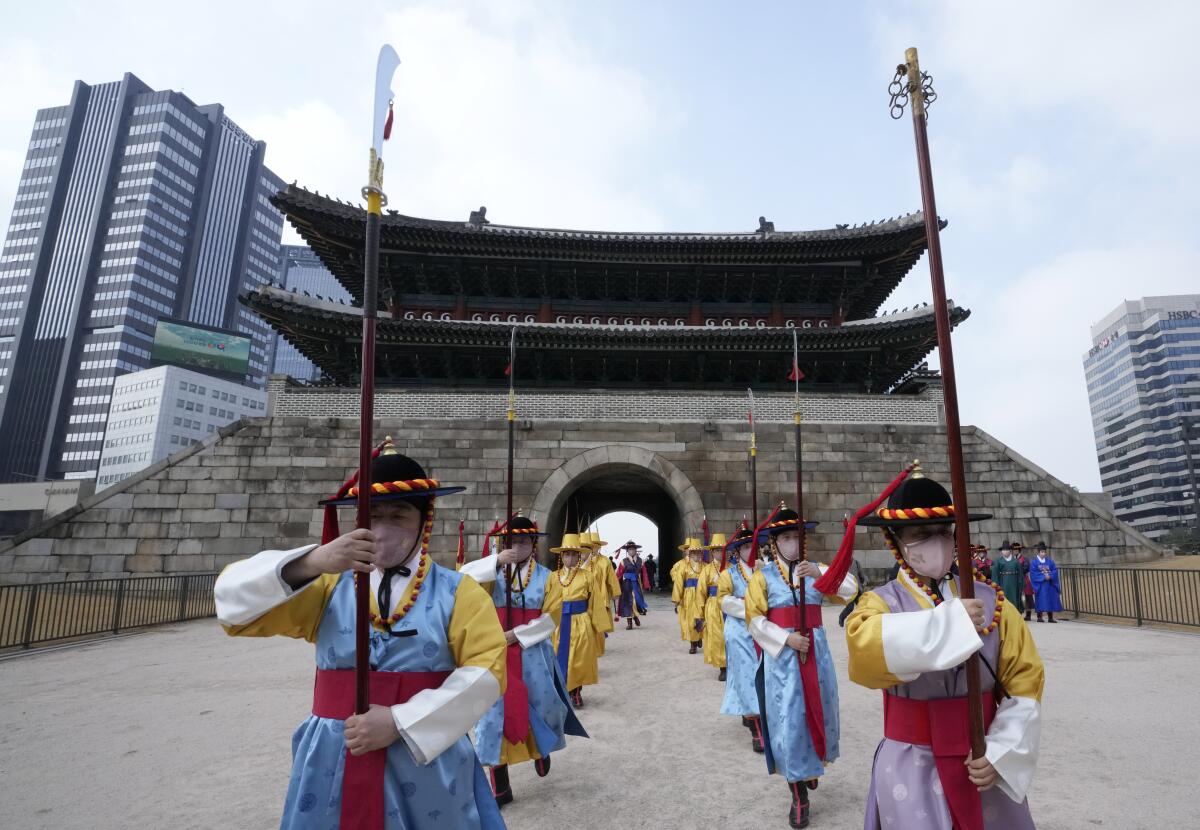
- Share via
SEOUL — South Korea had its deadliest day yet of the pandemic Tuesday, with 293 deaths reported in the previous 24 hours, as the country grapples with a record surge in coronavirus infections driven by the fast-moving Omicron variant.
The 1,196 coronavirus patients in serious or critical condition also represented a new high. Health officials said the country’s medical response remains stable following efforts to expand resources, with more than 30% of intensive care units designated for COVID-19 treatment still available. But the strain on the hospital system is expected to increase in coming weeks, considering the time lags between infections, hospitalizations and deaths.
“We anticipate the number of [serious or critical cases] to grow to around 2,000. We are preparing our medical response for that,” senior Health Ministry official Park Hyang said during a briefing.
South Korea has reported a daily average of around 337,000 new cases in the past seven days, including 362,283 on Tuesday, representing more than an 80-fold increase from levels seen in mid-January, when Omicron emerged as the dominant strain. The country’s caseload is now more than 7.2 million, with 6.4 million added since February.
Park said because of high vaccination rates, the country has so far weathered the Omicron surge with lower levels of fatalities than what was seen in the U.S. and Europe, which were hit by the variant earlier. More than 62% of South Koreans have received booster shots.
The country so far has 17.6 COVID-19 deaths per 100,000 people, compared to 285.5 deaths in the U.S. and 237.5 in Britain, according to the Korea Disease Control and Prevention Agency.
China has been locking down major cities to contain the outbreak, which by Western standards is small but tests Beijing’s zero-tolerance policy.
The Omicron variant has forced South Korea to abandon a broader COVID-19 response based on mass laboratory tests, aggressive contact tracing and quarantines in favor of focusing limited medical resources on priority groups, including people 60 and older and those with pre-existing medical conditions.
The Omicron surge and its growing economic toll will pose an immediate major challenge for conservative President-elect Yoon Suk-yeol, who will take office in May after narrowly winning last week’s election.
Yoon has been critical of the COVID-19 response under current liberal President Moon Jae-in, which was seen as a relative success before a devastating Delta-driven spread in the winter. Yoon has accused officials of maintaining an unsustainable approach that squeezed medical workers and livelihoods.
Yoon has promised relaxed social-distancing rules and stronger financial support for small businesses, but has yet to issue clear-cut plans to cope with the expected increase in hospitalizations and deaths.
North Korea is showing signs of easing its stringent border controls in hopes of boosting its ailing economy.
Health officials have recently significantly eased quarantine restrictions and border controls and stopped requiring adults to show proof of vaccination or negative tests when entering potentially crowded spaces like restaurants, to free up more public and health workers. The country has also reshaped its testing regime around rapid antigen tests, despite concerns over their accuracy, to save lab tests mostly for high-risk groups.
Officials may take further steps to ease social distancing soon, after having extended the curfew at restaurants, bars, movie theaters and other businesses earlier this month to ease the pandemic’s shock on service-sector businesses.
More than 1.6 million COVID-19 patients with mild or moderate symptoms have been asked to isolate at home to save hospital space, the disease-control center said.
The country will also begin a vaccine rollout for children between the ages of 5 and 11 later this month.
More to Read
Sign up for Essential California
The most important California stories and recommendations in your inbox every morning.
You may occasionally receive promotional content from the Los Angeles Times.
